Mangaluru, Feb 16: The students of Mangalore University staged a protest at Mangalagangotri seeking the arrest of those responsible for the suicide of Hyderabad Central University research scholar Rohith Vemula, here on Tuesday.
Addressing the protesters, research scholar Raghu said there is no meaning in terming someone as traitor who speaks about Ambedkar. Even when a movement is initiated in the name of caste, there will be a motto to eliminate the caste system and unite people, he added.
Those who celebrate the death of Rohith Vemula are not real citizens of the country. There is no right for police or for the government to kill people, he said.
Universities should propagate rational thoughts, he said.
Raghu said it is unfortunate that no voice is raised against the atrocity on students and lower group staff in the university. Also, there is a lack of basic amenities in the university. The movement related to the death of Rohith Vemula should also address these problems, he observed.
SFI district secretary Charan said no steps have been taken to solve the problems of students in universities. The moves of Union Minister for Human Resource Development Smriti Irani have been discouraging students like Rohith Vemula, he claimed.
He said that the fee in Mangalore University is more when compared to other autonomous colleges and sough the restructuring of fee.
Research student Harish, SFI district President Hamza Kinya and others were present.
The research scholars in all universities of the State staged protest on the day.



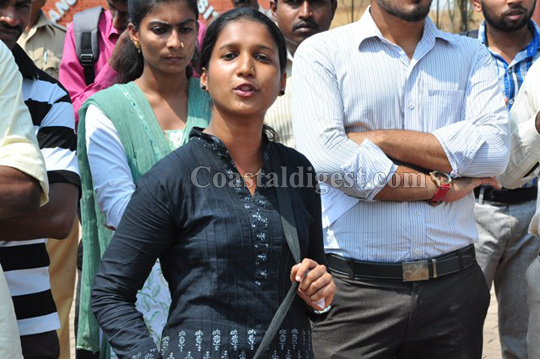
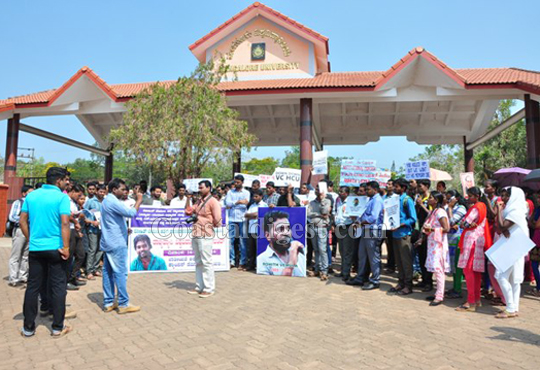
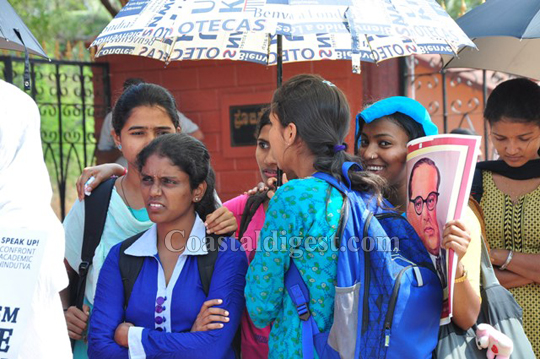

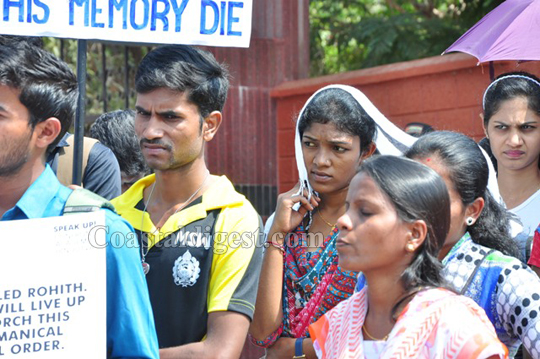
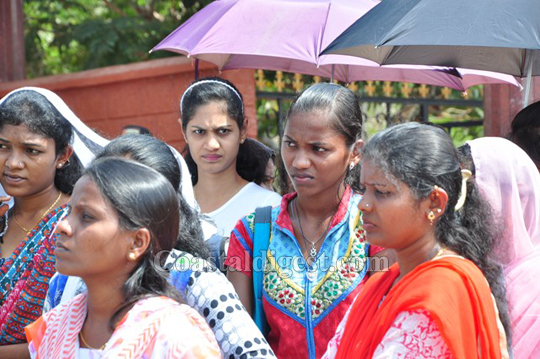
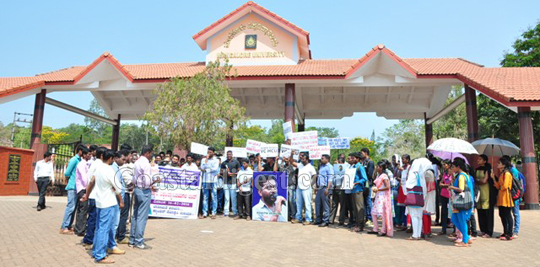
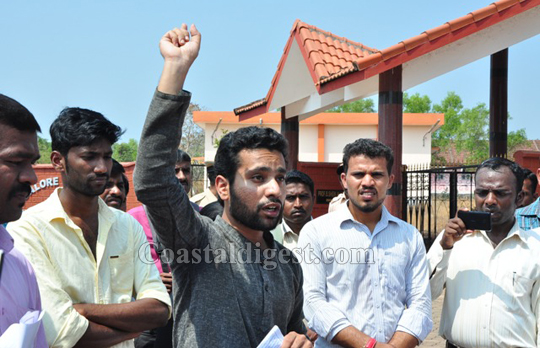


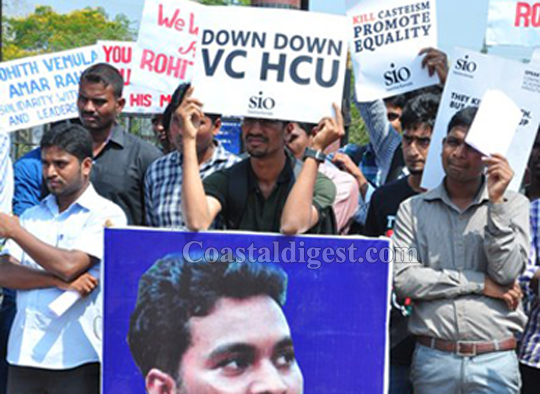






Comments
As we all know central government had played a dirty game by bringing JNU as national issue brought steam line to vanish Rohith Vemula issue... we should not forget his sacrifice ... we all Indian should join hand with this protest.. We are there with you Rohith ...
Add new comment